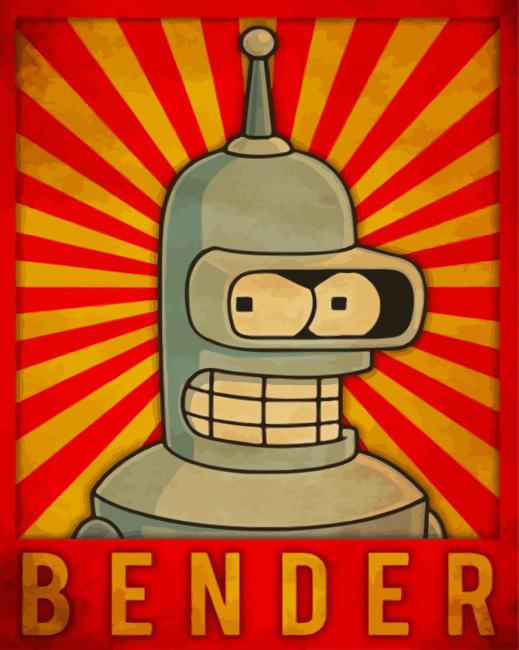I’ve always had trouble getting into coding/programming because I’ve never truly dedicated myself to it. Mostly, this is because I kinda always lose momentum to learn it. I’m a heavy FOSS user; I love coreboot/Libreboot and am interested in getting into firmware development. I’ve already helped test hardware for Libreboot and enjoy learning about firmware.
I have just started to cut out gaming from my life to focus more on this. Maybe I should start with Python? At the same time, though, I feel like I should start with C, but don’t want to jump the gun too quick.
Feel free to share your stories!
start with python to do what? learning a language is not the same a s learning programming. Heck most languages can be learned in an hour or two. Programming is another beast altogether.
A person can learn to use a hammer in minutes, but it doesn’t make them a carpenter.
Find a project you want to build, and start building it. solve problems, and learn along the way. Learning “python” on its own will not help you learn programming in any way. Programming stuff will.
I second this.
I started learning Google app script for work and while its not exactly traditional programming like most folks would do, i can now look at javascript and have a basic understanding of whats going on.
I learned a ot by doing. And with the help of ai, i was able to learn concepts, syntax, the best way to do this or that at least to a degree.
Just trying to make something is the best way. Make a tool to make your life easier. Like if you have a repetitive task that you dont want to do each time, make a script that does it for you.
I was a self taught programmer who 10+ years later is now a senior software engineer. I can’t tell you what to do but I can tell you what worked for me.
The reality is, I never sat down with the intent to “learn programming”. Instead, I had practical ideas for things I wanted to make the computer do, and then I learned whatever was necessary to accomplish my projects as I went. Whenever I got stuck or hit an error, I’d search my questions online.
I never truly “finished” most of these early projects but they gave me a practical understanding of how things fit together. From there I just kept making stuff and taking on harder projects and then harder jobs and eventually other programmers started coming to me asking for help because they knew I had solved the thing they were working on before.
I’m not sure if it’s advice, but I’d say stop worrying about learning and just do. If you like firmware, go buy some shitty unsupported peripheral from Goodwill and try to make it work on your modern system. Solve a problem you have in your everyday life. It doesn’t matter if you accomplish the goal, you’ll learn a lot by googling your way through it. Do that enough and you’ll wake up one day and be a competent programmer.
I’m genX, so I grew up with 80s microcomputers. Programming was pretty much the only thing you could do with them.
I learned Minecraft (and other video games) were made with coding, so I had to learn it to make my own.
I was like 8-10 and found a tutorial on how to use eclipse. I thought I followed it to the letter, but it didn’t compile.
At 12, my math teacher offered python courses, so I attended them and yeah.
In grade 5-6 we had a course on typing, it was boring so instead I played NIBBLES.BAS and GORILLA.BAS started modifying the Basic code to give me more lives.
Some time later I got hold of Visual Basic 3.0 and made some small programs, after that I was told that the cool kids were programming in C++ so i got hold of Borland C++ Builder 1.0 and played with it.
The latest language I learned was Python, this was when Oracle brought Sun (2009) I was fond of Java but wanted a language that was not in the clutches of a corporation, and Python was already on the rise back in 2009.
I think starting with Python is a good idea, when you get better at the language you can then add more languages like C/C++ or whatever you feel for, because when you know one programming language its easier to learn another one.
I wanted to have a cool geocities page, so I needed some HTML. Later I wanted to do downloads and forms… maybe a domain is in order. Learned some php and javascript. Discovered desktop languages, this C# stuff is pretty neat, I can do a lot with it. It’s versatile. Oops now I’m getting a paycheck for this silliness, and depending on it to eat.
I had a triple major of Psych/Soc/Phil with the intent of teaching. My focus in Philosophy was mostly logic and analytical reasoning. I ended up marrying my GF and had to quit college in my junior year and go to work where I ended up doing a lot of computer work on the IBM XT. One late night working on electronic bids for parts we sold I realized computers are not going anywhere and focusing on that would get me out of this sales job. I went to Control Data for a year which got me in the door of a company. Programming was nothing but logic which was my focus in college so it came pretty easy to me. That was 1989. I contracted to Ford for the next 30+ years doing everything from data analysis at the start to SQL and DB’s for a while, and then I ended up on teams delivering software to the plants. I always wanted a job that would allow me to see the world and for over 20 years I traveled on the corporate dime, including an around the world trip for work in Asia and Europe on the same trip. I traveled almost 300k miles on planes during that time and had a chance to see how people live and work all over the world.
Dude, this is exactly what billions of people wish for. You are living the dream, take in every second of it.
I worked with a lot of people making close to 6 figures who only had a 2 year associates degree in controls traveling right along side of me. They made more than me with less education but more technical skill. It’s also a job market that is growing like crazy; automation.
I started my career with it, studying it in college. Relying on it for finances definitely is a major push. I don’t touch it for a hobby though because of that. Hopefully others can help with suggestions for that side of things.
I feel like you’re trying to fight an uphill battle. I find it’s always easiest to learn in a way that motivates or invigorates me.
For example, I wanted to play games with my friends so I got into hosting a Minecraft server. It was hell at first to learn all the individual pieces, but I was motivated and it led me down the path of learning networking, basic server client architecture, and performance monitoring. That kind of spiralled out into making my own plugin, too. Despite the fact that I never ran a server with more than 5 active players or finished my plugin, it sent me down a path learning tons of new stuff because it was fun for me.
I transitioned into webapp development later on by trying to make an idea I had come to life. This was well before I had even heard the word “startup” and I had no business sense, but I wanted to make something and was very motivated to hack my way through it. I didn’t finish that either, but I still use those skills I learned today.
Got into making redstone logic in Minecraft, including joining a community of people building all kinds of crazy things like CPUs. This was early days too - I think the repeater was brand new
Eventually wanted to make mods so started learning Java. Was bad at it. Then wanted to make games in unity. Was bad at it. Learned C++ at Uni. Dropped out and was bad at it.
Kind of repeated this cycle for various languages and tools for years, never with enough motivation to learn properly. Eventually I hit a critical mass of skill and was able to actually make things in HTML/JS and over a couple years this snowballs until surprisingly quickly I find myself a senior developer teaching others!
I had my start with Python, albeit as a kid and I didn’t actually understand too much about the principles at the time. Still, I think that was a good place to start learning about the concepts of instructions and variables.
I learned more about the ideas underpinning it all later, and most of my understanding came when actually working in software development on a live and in-development codebase. I think that’s a good progression: start small, then learn some theory just so you’ve heard the terms once, then try to make sense of actual code using that.
Edit: definitely work on some goal though. Don’t code in a vacuum, think of something small you want to achieve and learn to do that.
The used Commodore64 my parents bought from my cousin included a book on programming in BASIC. I wrote a few games and was hooked.
From there I moved on to ZZT and its internal scripting language, making dozens more games and sharing them with friends and Internet strangers. At the same time I was teaching myself HTML from online tutorials and making my first webpages.
By the time I was in college I was writing my own blogging software and doing freelance projects for grad students who needed specialized data-processing widgets. Also learning the more mathematical side of CS like computability theory and complexity theory and graph theory, and some boring computer engineering stuff that wasn’t nearly as interesting to me.
When I left college I needed a job and stumbled into teaching, first just web design and later into to CS. The senior teachers in the CS department taught me even more about both how computers really work as well as how to talk about information and the ways we use and manipulate it. I finally understood both the Fourier transform and JavaScript.
I played flash games as a kid on Newgrounds. There was an option to submit your own flash games and that made me curious as to how they were made. I searched tutorials on how to make flash games and that was my start.
Eventually I got interested in making programs outside of Flash. Still being a kid, I wanted to be the coolest programmer/hacker ever so I learned C (the only language hackers use) and intalled linux (the OS for hackers). I mostly use Python now since I can get projects done much faster.
It doesn’t matter what language you start with. Just learn the core concepts around loops, if statements, data types, data structures, object-oriented programing vs functional programming. Those concepts span across all languages and once you know them you can just google “how to splice string in (language here)” when you’re using a different language. C is great if you also want to learn how computers manage data and how data structures work from first principles, since in C you need to manage memory yourself and it doesn’t come with any advanced data structures built in so you’ll need to implement them yourself.
I now mostly use my programming knowledge for hobby stuff. I automate tasks, do programming challenges, and mod games.
I started learning Python in middle school and completed some projects that I wanted to make. That’s how I got into programming. Now I use Rust for my hobby projects and C++ for school.
I always were fascinated by computers so it was easier for me to get into it. But if you can find something that might get you motivated to try to program, I’m certain you’ll get into it.
I saw the video about Python from Life Of Boris and thought it looked fun, so I just decided to learn programming.
I love Life of Boris








